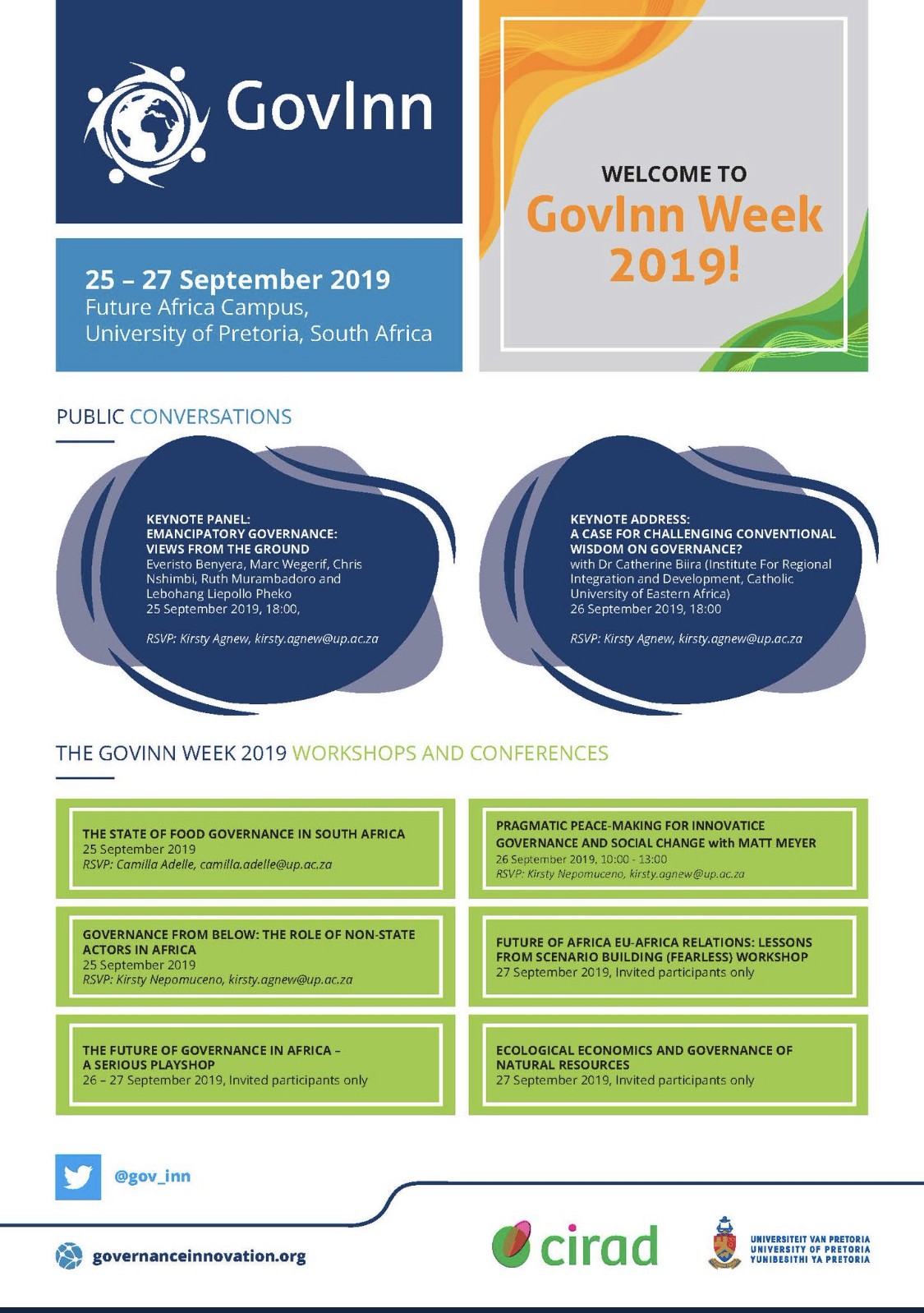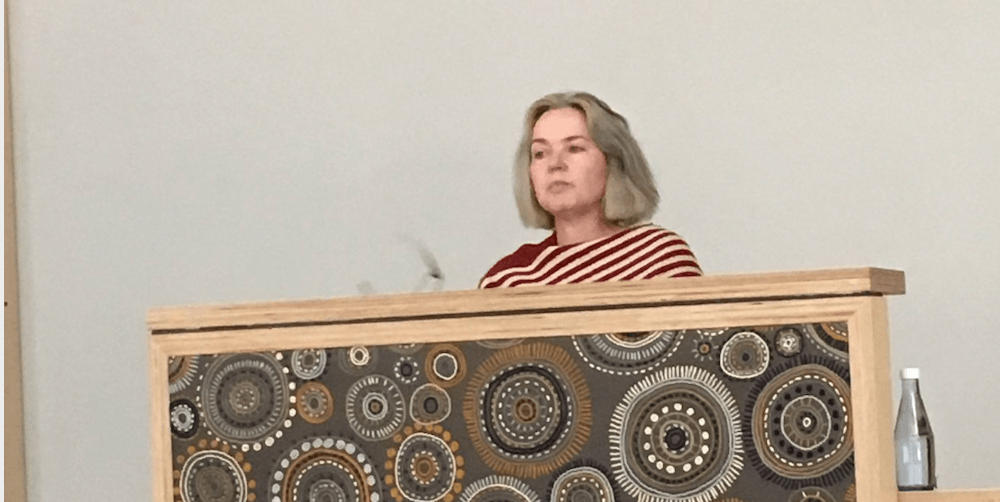On 25 September, the Centre for Governance Innovation held a workshop on ‘The State of Food Governance in South Africa’ at the Future Africa Campus of the University of Pretoria. This event was part of the biennial Governance Innovation Week organised by the Centre.
The objective of this workshop was to continue the existing policy debate on food insecurity in South Africa. It reviewed and discussed what is known about the policies and programmes relating to food and nutrition security at national and local levels of governance; identified the main knowledge gaps; and then debated the major issues preventing effective food security governance in the country.
South Africa is food secure at the national level. However, food insecurity and malnutrition at the household level are high and the country has a poor record with regards to the prevalence of stunting, obesity and diet-related non-communicable diseases. Since 2002, a range of policies have attempted to address these high levels of food insecurity, yet food insecurity and malnutrition persist, which raises core concerns about the South African food system and its governance.
Dr Tracy Ledger weighed in on the power of corporates and their ability to shape how questions are framed in the public debate:
“In SA, corporates have got a disproportionate amount of power in the food system, and this is detrimental to most of our social justice and equity outcomes – food security, the viability of small farmers, critical land use, nutrition, the environment etc.”
Watch the video on Twitter: twitter.com/i/broadcasts/1yoKMzgYoWDGQ



